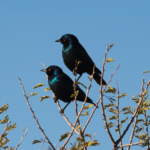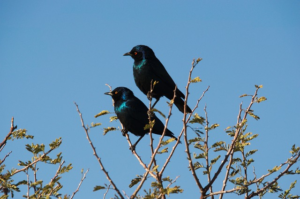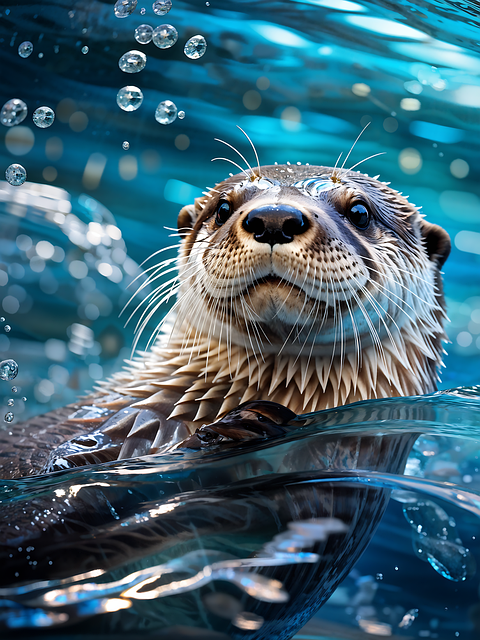In a photograph from Business Wire, Beth Shapiro, Ph.D., is highlighted as the chief science officer at Colossal Biosciences. Colossal, which is recognized as the first "de-extinction company" globally, has revealed advancements in its ancient DNA program. This progress includes acquiring over $7.5 million in new funding for academic partners at Colossal in 2024, hiring more ancient DNA researchers, expanding the network of university partners specializing in ancient DNA, and establishing a technology HUB for research in ancient DNA. These initiatives are focused on facilitating significant new breakthroughs from ancient DNA research with academic partners that could offer invaluable insights into addressing the challenges posed by our changing climate, as stated by the company.
The CEO and co-founder of Colossal, Ben Lamm, described ancient DNA as highly complex and likened it to solving a puzzle without knowing its complete picture or missing pieces. Breakthroughs in research have the potential to advance genomics for everyone and challenge the AI tools developed by Colossal.
Colossal aims to support researchers in making groundbreaking discoveries as they believe this is crucial for driving significant scientific progress. Dr. Beth Shapiro, renowned ancient DNA specialist and Colossal's chief science officer, will lead the company's research in this area, manage funding distribution, and establish new partnerships and initiatives globally.
Ancient DNA research provides insight into the evolutionary history of species, communities, and ecosystems in response to habitat and climate changes over millions of years. Shapiro emphasized the importance of studying ancient DNA to understand how organisms adapt to climate change and ecosystem shifts, ultimately aiding in the creation of resilient ecosystems in the future. Under Shapiro's leadership, the company aims to expand its current work and unite the ancient DNA community to accelerate scientific discoveries. Ancient DNA found in the remains of past plants and animals is a central focus of Colossal's projects, enabling researchers to learn from past evolutionary experiments to inform present and future ecosystem management decisions.
Colossal believes that supporting ancient DNA research worldwide is essential for promoting biodiversity in the future. Ancient DNA holds valuable and undiscovered information that can help improve the planet's future. The company collaborates with universities, field researchers, and experts like Shapiro to extract ancient DNA from various animals, including woolly mammoths, thylacines, and extinct birds like the solitaire. By working with ancient DNA, research teams can uncover lost evolutionary innovations and highlight the need for more funding and unity within the field. Colossal has invested in partnerships with universities globally, such as Stockholm University, the University of Potsdam, UC Santa Cruz, the University of Alaska, McMaster University, University of Copenhagen, and Rowan University, to further ancient DNA research.
The company made investments and formed partnerships for ancient DNA research on various extinct species like blue bucks, Columbian mammoths, saber-toothed cats, and more. The goal was to uncover evolutionary innovations that could assist animals in adapting to the current climate crisis. These investments are starting to show positive results, with new insights on algorithm development, gene editing, and identifying rapidly evolving genome regions. The research is also shedding light on how populations decline to extinction and how some species may adapt to future climate changes. Colossal plans to continue collaborating with research teams worldwide to further advance ancient DNA science.
The attention given to hyenas is often lacking, with many people unaware that these animals once inhabited Europe and Asia until the end of the last ice age. Michael Westbury, an assistant professor at the University of Copenhagen, expresses gratitude towards Colossal for supporting his research on extinct cave hyenas through funding for genome sequencing. Colossal has committed a $500,000 donation to the UCSC Genomics Institute to aid the UCSC Paleogenomics Lab in its student and research endeavors starting this summer.
Stay informed about the latest innovations happening in Dallas every day by signing up. Get updates on what's new and upcoming in the Dallas-Fort Worth area on a daily basis.
Header title: Next Steps to Read
The University of Arlington is building a new facility on its campus, which will greatly enhance its research capabilities as a top-tier institution in Texas. The focus of this new center will be on crucial issues related to brain health.
Colossal Biosciences and BioRescue are collaborating to prevent the extinction of the northern white rhino species, which now only has two known living female individuals. These organizations are using cutting-edge genetic technologies to alter the fate of these rhinos.
The Oversight Committee of CPRIT has approved 29 new grants, including the first CPRIT Scholar award to Southern Methodist University in Dallas. Additionally, funding has been allocated to the Baylor Research Institute in Dallas to participate in a significant study conducted by the National Cancer Institute.
The Oversight Committee will play a vital role in discussing and implementing plans related to Colossal's aim of "de-extincting" and reintroducing the Tasmanian tiger species, which was wiped out by human activities around a century ago.
Although not as grand or fantastical as the dragons in "Game of Thrones," the Victorian Grassland Earless Dragon in Australia is a unique and magical creature that has survived despite believed to be extinct. Colossal Biosciences from Texas is partnering to aid in the preservation and genetic sequencing of this species.





























